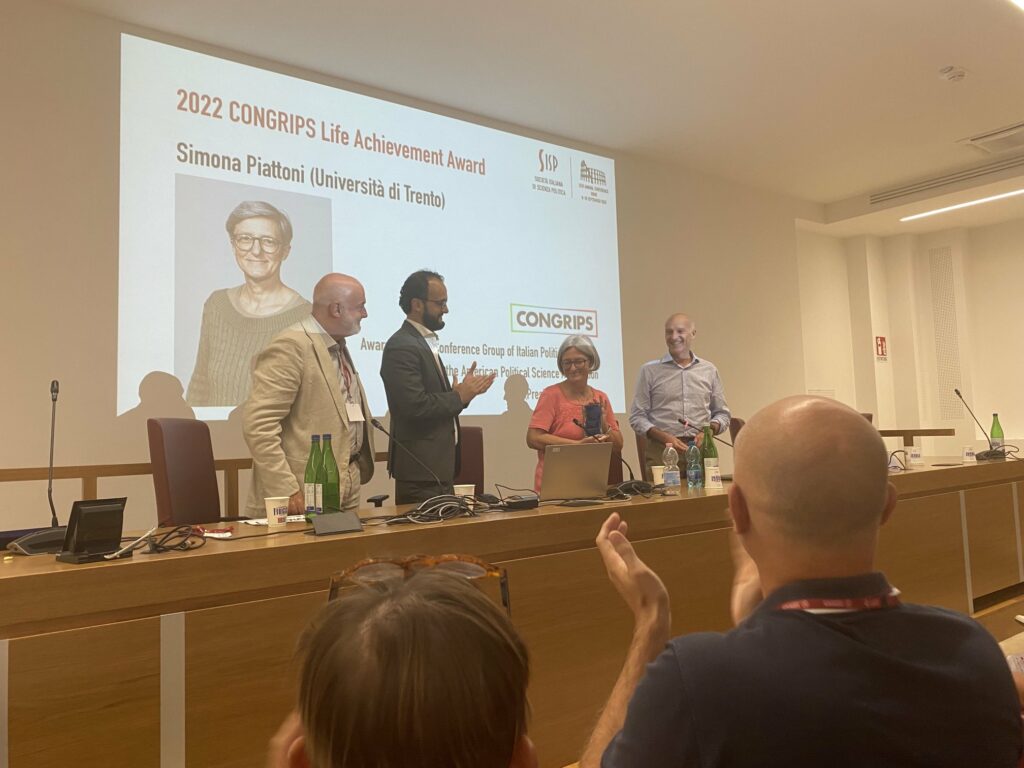CONGRIPS call for papers for the 2021 APSA Annual Meeting & Exhibition (Sep 29 – Oct 03, 2021, Seattle)
Pluralism, Pandemic, Prejudice, and Promise in Italian Politics and Society
Conference Group on Italian Politics
Erik Jones (Johns Hopkins University) and Antonella Seddone (University of Turin)
The theme for the 2021 theme for the APSA Annual Meetings is ‘Promoting Pluralism’. The conference chairs interpret that theme in political, empirical, and methodological terms. The Conference Group on Italian Politics and Society (CONGRIPS) would like to use that theme to highlight the many challenges we face understanding where Italy is at the moment, how Italians got to this place, and where they are headed.
The Italian political landscape and society were already going through a phase of great instability, where different (and new) trends crossed the country as populist and Eurosceptic pressures were reshaping the public debate. The Covid-19 emergency broke into an already confusing scenario, once again redefining the nature of political and social challenges and imposing new agendas while de-facto raising the stakes. Crises like this one have an impact on societies in terms of both vertical and horizontal trust: they can bring societies together in the face of common adversity, but they may further strengthen political polarization. Also, the economic consequences lead (and even deepen) societal inequalities. Economic disadvantages coming from the Covid-19 emergency may intersect with issues of race and ethnicity. In addition, the risk perception combined with emotional reactions (i.e. fear, threat, distrust) are often associated with higher levels of intolerance and prejudice toward out-groups. In this period of enormous complexity, it is essential to move beyond consolidated notions, theories and research frameworks and to venture into new paths able to grasp more effectively the sense of what happened and to better understand how our societies have been reshaped (and still are) by the epidemic emergency.
Italy confronts a wide range of powerful political, economic, and social forces. Some of these are longstanding, and derive from changes in demographics, industrial paradigms, trading patterns, and relations with other countries. Other forces are newer and emerge from the collapse of traditional political parties alongside the rise of political and social movements. Still others are immediate and relate not just to the Covid-19 pandemic but also to the unprecedented implications of policy efforts to try and stop the spread of the virus.
Like the conference program chairs, we invite contributions that are messy and inconclusive as well as those that are rigorous and parsimonious; we also invite contributions from researchers who are willing to start a conversation that is open to the wider public in addition to making an important contribution to scholarship. We strongly encourage proposals relying on different methodological and theoretical frameworks even going beyond the disciplinary boundaries. Of course, Italy is hardly alone in facing this confluence of powerful forces. Therefore, CONGRIPS welcomes contributions that help to situate the Italian experience in a wider comparative or international perspective. The aim is to take advantage of the richness and complexity of Italian politics and society both to learn more about Italy and to draw insights from Italian experience for the rest of the world.
Applications should be submitted via the APSA process. Informal inquiries can be made to the CONGRIPS program chairs, Erik Jones (erik.jones@jhu.edu) and Antonella Seddone (antonella.seddone@unito.it).
Deadline: 31 December 2020







